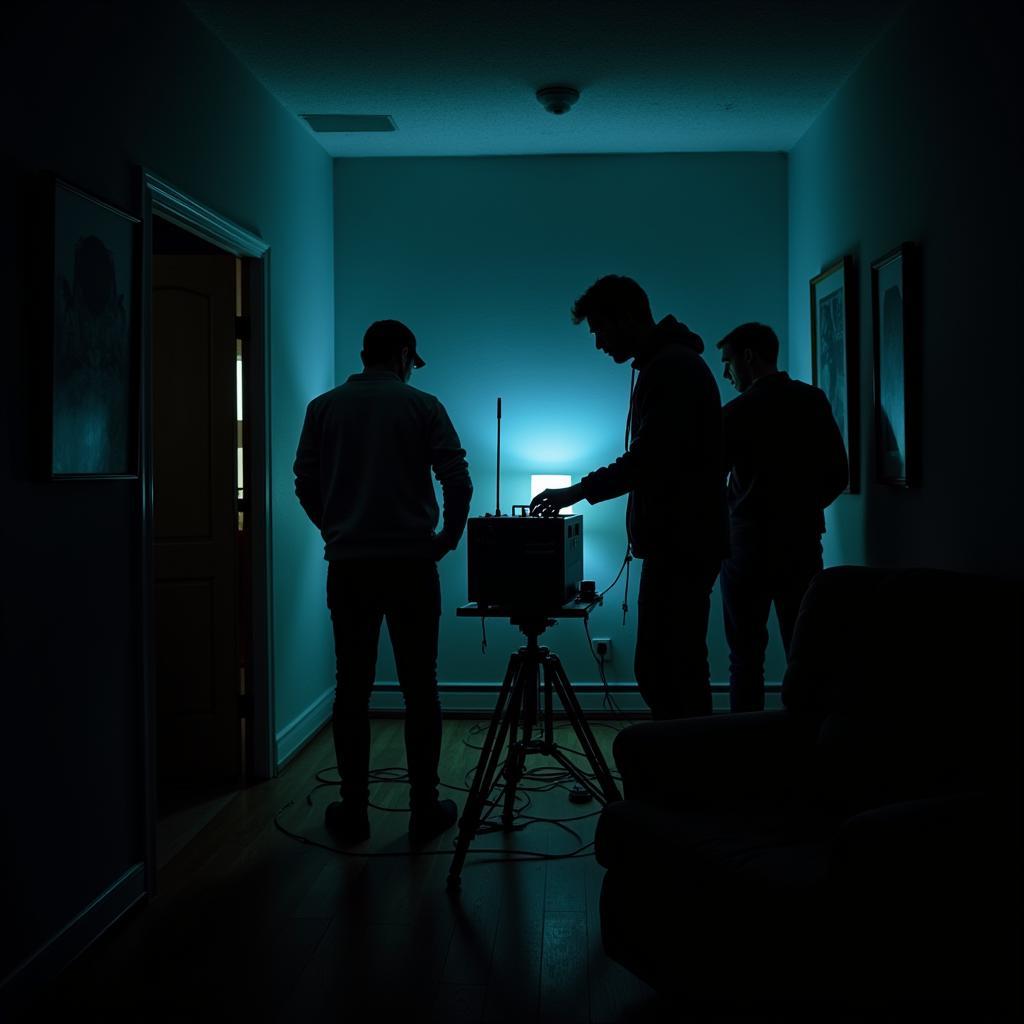Cm Research, short for “consciousness and metaphysics research,” delves into the enigmatic realm of paranormal phenomena and their relationship to human consciousness. This field explores the fringes of scientific understanding, seeking to shed light on experiences that defy conventional explanation. From telepathy and clairvoyance to out-of-body experiences and near-death phenomena, CM research grapples with questions that have captivated humanity for centuries.
Unveiling the Mysteries: What is CM Research?
CM research encompasses a wide array of investigative approaches, drawing upon disciplines like psychology, parapsychology, neuroscience, and philosophy. Researchers in this field employ rigorous methodologies, including controlled experiments, statistical analysis, and qualitative research, to collect and analyze data related to paranormal phenomena.
One of the central tenets of CM research is the exploration of consciousness beyond its conventional boundaries. While traditional science views consciousness as a product of the brain, CM research entertains the possibility of non-local consciousness, suggesting that awareness may extend beyond the physical body and interact with the surrounding environment in ways yet to be fully understood.
 CM Research Investigation
CM Research Investigation
Exploring the Spectrum of Paranormal Phenomena
CM research encompasses a diverse range of phenomena, including:
- Telepathy: The purported ability to communicate thoughts directly from one mind to another without the use of conventional sensory channels.
- Clairvoyance: The alleged ability to gain knowledge of distant or hidden objects, people, or events without the use of the five senses.
- Precognition: The purported ability to perceive future events before they occur.
- Psychokinesis (PK): The alleged ability to influence physical objects or processes using only the power of the mind.
Methodologies and Challenges in CM Research
CM research faces unique challenges due to the elusive and subjective nature of the phenomena under investigation. Researchers must contend with factors like:
- Repeatability: Paranormal phenomena often occur spontaneously and are difficult to replicate in controlled laboratory settings.
- Subjectivity: Experiences are often filtered through the lens of individual perception, making it challenging to establish objective measures.
- Skepticism: The field faces significant skepticism from the mainstream scientific community, which demands rigorous evidence and often attributes paranormal experiences to psychological or environmental factors.
Despite these challenges, CM researchers continue to develop and refine methodologies to investigate these phenomena. Some common approaches include:
- Controlled Experiments: Researchers design experiments to test specific hypotheses related to paranormal abilities, often using specialized equipment to measure physiological responses or environmental changes.
- Field Studies: Investigations are conducted in real-world settings where paranormal activity has been reported, such as haunted locations or sites of alleged psychic phenomena.
- Case Studies: Researchers collect and analyze detailed accounts of individual experiences, looking for patterns and insights into the nature of these phenomena.
The Significance of CM Research
While CM research remains on the fringes of mainstream science, it holds the potential to expand our understanding of consciousness, the nature of reality, and the limits of human potential. By exploring the unexplained and challenging conventional paradigms, CM research encourages us to question our assumptions and embrace the unknown.
Dr. Emily Carter, a leading researcher in the field of parapsychology, states:
“CM research is not about proving or disproving the existence of the paranormal. It’s about asking difficult questions, exploring alternative explanations, and expanding the boundaries of scientific inquiry.”
Conclusion
CM research offers a fascinating glimpse into the uncharted territories of human consciousness and the paranormal. While the field continues to face skepticism and challenges, its pursuit of understanding the unexplained holds the potential to unlock new perspectives on the nature of reality itself. As we delve deeper into the mysteries of consciousness, we may find that the boundaries of what we consider possible are far more fluid than we ever imagined.
If you’re intrigued by the enigmatic world of CM research, you might want to explore further by checking out The Curious Researcher PDF. This comprehensive resource provides insights into the history, methodologies, and key findings of Paranormal Research.
Have you ever had an experience that defied rational explanation? Share your thoughts and experiences in the comments below. We’d love to hear from you!
Frequently Asked Questions about CM Research:
1. Is CM research considered a legitimate scientific field?
CM research is often considered a fringe science due to the difficulty in consistently replicating findings and the lack of a widely accepted theoretical framework. However, it employs scientific methodologies and continues to gain recognition as a valid area of inquiry.
2. What are some of the ethical considerations in CM research?
Ethical considerations in CM research include ensuring informed consent from participants, protecting their privacy and confidentiality, and avoiding any practices that could potentially exploit or harm individuals involved in investigations.
3. How can I get involved in CM research?
There are several ways to get involved in CM research, such as volunteering for a paranormal investigation group, attending conferences and workshops, or pursuing academic studies in parapsychology or related fields.
4. What are some of the most compelling pieces of evidence supporting paranormal phenomena?
While definitive proof remains elusive, there are numerous anecdotal accounts, historical records, and experimental findings that suggest the possibility of paranormal phenomena. Some researchers point to studies on telepathy, remote viewing, and near-death experiences as providing intriguing evidence warranting further investigation.
5. What are some common misconceptions about CM research?
Common misconceptions include the belief that CM research is solely focused on ghosts and hauntings, that it lacks scientific rigor, or that all paranormal experiences can be easily explained away by conventional means.
For immediate assistance or to schedule a CM research call, please contact us at:
Phone Number: 0904826292
Email: [email protected]
You can also visit us at our research center located at:
No. 31, Alley 142/7, P. Phú Viên, Bồ Đề, Long Biên, Hà Nội, Việt Nam.
Our dedicated team is available 24/7 to address your inquiries and provide support.